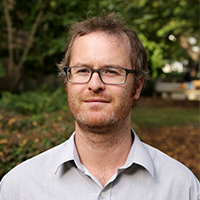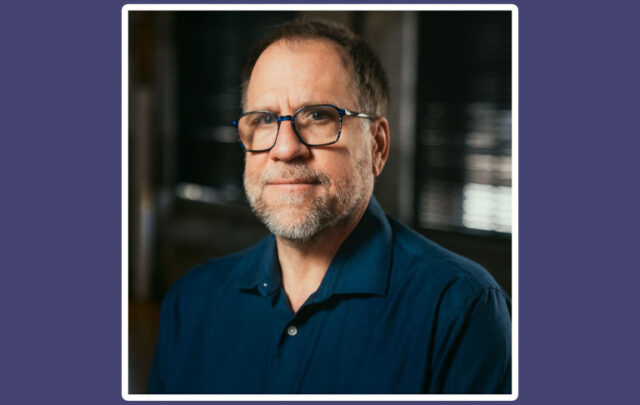
I’ve had a handful of requests from people asking for a transcript of my short introduction to the film premiere last Friday (full documentary is now available here). I’ve turned my notes into a script which I think is pretty much word for word.
Good evening everyone, a very warm welcome to you all, my name is Samuel Alexander and I’m very happy to be introducing tonight’s premiere screening of ‘A Simpler Way: Crisis as Opportunity,’ a documentary that I co-produced with my very good friend, Jordan Osmond of Happen Films. Thank you all for being here tonight. It’s extremely encouraging and uplifting to see so many friendly and familiar faces in the audience. I won’t speak for long tonight but I would like to say a few words by way of introduction to the film, and to close with some brief but necessary thank yous.
I was drifting through cyberspace recently, not really absorbing the words in front of me, when I came across a sentence that tripped me up, so to speak, and forced me to pay attention. That sentence read: ‘The pain you feel is capitalism dying.’ The writer went on to explain that it hurts because we are inside this dying system, we are inside this unsustainable form of civilisation while it is undermining the life support system we call Earth, and what is perhaps most unsettling about this is that it’s not yet clear what comes next; nor is it obvious that the global problems we face even have smooth, painless solutions. The hour is dark and a bright new dawn is not guaranteed.
‘The pain we feel is capitalism dying.’ The words left an impression on me I think because they describe that strange, existential ache that we probably have all felt at some time or another, when contemplating how we should live our lives in a world that seems so tragically off track. I am referring here to the emotional or what one might even call the spiritual challenge of living in an age of crisis; of living in an age when the myths and stories that have shaped and grounded our cultures and even our identities have begun to breakdown, unsettling our sense of purpose and place in fast-changing world.
But this crisis of meaning in our culture, if I can put it that way, presents itself to us, I think, as a heavily disguised but tantalising opportunity. One of the most promising aspects of the biological world we live in is that the cycles of nature embrace death and decay as a necessary part of rebirth – as anyone who composts knows very well – and if we understand this, then we can see that as the existing form of life deteriorates in the face of environmental limits, new ways to live will inevitably evolve, and are evolving, like green shoots peeking out of the widening concrete cracks in capitalism. And our challenge I think is to face this inevitable breakdown with defiant positivity and set about turning today’s crises into opportunities to reinvent ourselves, our cultures, and our economies in more localised, more resilient, more humane ways. We are, it seems, like tiny microbes inside this massive, decomposing system, being challenged to work creatively away in our own small ways, building the soil from which a diversity of new worlds can emerge. In short, I would say that we are being challenged, at this moment in history, to compost capitalism; and in the rich soil of resistance and renewal, our task, our collective task, is to seed a new Earth story.
So how, as Charles Eisenstein would say, can we create ‘the more beautiful world our hearts know is possible’? Tonight’s film is a humble gesture in support of that world. It is a small but hopeful contribution to the emerging web of social movements and counter-cultures that are trying to experiment creatively with new, less impactful ways of living, in the hope of building new worlds within the shell of the old – for the sake of our beautiful but fragile planet, for the sake of others, and even for our own sakes. And when asked how we are going to do this, or whether we will succeed, I think it is ok to reply: ‘We don’t really know, but let’s do it together.’
So the documentary you will see tonight doesn’t offer answers to the big questions facing our species, as such – we don’t have the answers – but it does seek to provoke thought about them, so ultimately you will be left to digest the issues as you see fit: to throw out the bits that may not apply to your life and build on the bits that do. To be clear, our aim in making this documentary was not to provide a blueprint or template for sustainable living that everyone should or could apply in their own lives, irrespective of context. And there are many important questions and issues we weren’t able to address. Our aim, instead, was simply to document one example of a small community swimming bravely against the tide of consumer culture, authentically exploring the question of what one planet living might look like on a planet of seven billion people and counting, and learning from the inevitable contradictions that are faced when trying to live simply in a growth-orientated world.
In an age when it can sometimes seem like there is no alternative to the carbon-intensive, consumer way of life, being exposed to real-world examples of alternative ways of living has the potential, I think, to expand and radicalise the ecological imagination. And in those moments when we are able to break through the crust of conventional thinking, we just might come to see that the world as it is, is not how the world has to be.
The last couple of years making this documentary have confirmed that life proceeds in twists and turns, never straight lines. As the documentary was taking form, it often felt as if Jordan and I were trying to direct things while going backwards down the rapids. Or, to change the metaphor slightly, I feel this project has been like one of those rollercoaster rides which leaves you both trilled and exhausted – proud that you were brave enough to go on the journey but unsure whether you’d do it again, at least in the same way. But I can say, no humans were harmed in the making of this documentary – physically at least, psychologically, it’s too early to say.
Whatever the case, I think it is fair to say that the entire process has shaped the people involved just as we have tried to shape it. It’s been a sharp learning curve, but it’s also been a meaningful and fulfilling one, even if it hasn’t always been easy. And perhaps that speaks to a greater truth at play here. The future isn’t shaping up to be easy for our species – the problems we face can often seem overwhelming – but the struggle for a more beautiful world promises to be meaningful and fulfilling, if we take to the task with humility, compassion, and creativity. We offer tonight’s film in that spirit.
Before we turn the lights off and watch the film, I must share a few short thank yous. First and foremost I need to thank Nick and the entire Lampel family for their extraordinary generosity. As people here tonight will come to learn, if you don’t already know, the Lampel’s own the land which is literally the foundation of tonight’s documentary and without their openness and willingness to share, what you are about to see could not have happened. Nick, thanks for being who are.
Secondly, to the community of poet-farmers who formed for this mad documentary project – Liz, Emmet, Taj, Liam, Rachel, Antoinette, Ross, Renee, Ruby-Moon, Paddy, and Dan – most of whom are here tonight – I’ve said it a million times privately, but now let me say it once more in this most public forum. Thank you all for the faith that you put in this project and for the passion, creativity, and authenticity with which you threw yourself into the year’s experiment. You all inspire me; I’ve learnt so much from all of you; you all challenge me in fruitful ways; and I feel very lucky to have you as friends.
Thirdly, to my co-conspirator in this documentary, Jordan Osmond. It’s been such an incredible honour to have worked with him on this documentary. Creative collaboration is never easy, but for every moment of creative conflict there were at least one thousand laughs, so thank you for everything Jordan. I am very happy to say that Jordan is a fast emerging filmmaker of boundless talent and vision, he’s quickly developed a massive online following, and I’m very proud to have co-produced this film with him. You’ll all be hearing and seeing a lot more from him in the future, and I find that a very exciting prospect.
I also have to express special thanks the most lovely Antoinette Wilson who has worked tirelessly with me and Jordan in recent months. Without her unwavering commitment, without her editorial and organisational talents, and her creative input, I think I can say this film would never have become a reality – at the very least, it would still be a year away from release. And, in those moments of creative disagreement I mentioned, having a third person involved in the writing process also made democracy possible, which averted war.
On a more personal note, let me just say a loving thank you to Helen and young Laurie, both here tonight, for being so unconditionally supportive of me throughout the full gestation of this project. This documentary called for regular absences from my household and while those absences were always full of purpose and invigorating hard work, I always looked forward to returning home. From the bottom of my heart, thank you Helen and Laurie for making our household so warm, even when I don’t let you turn on the heating.
Thanks once more to you all for coming tonight, thanks to the many people who helped organise tonight’s event, I hope you all enjoy the film, and I look forward to some discussion afterwards where I hope the collective genius gathered in this room can feed off itself. We’ll be inviting David Holmgren and Helena Norberg-Hodge up on stage to be part of that panel discussion, along with some of those involved in the film, so please stick around afterwards. Now, without further ado, I give you, “A Simpler Way: Crisis as Opportunity.”
The full documentary is freely available here.






